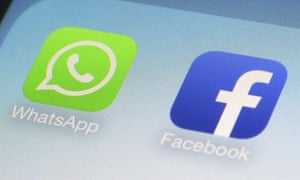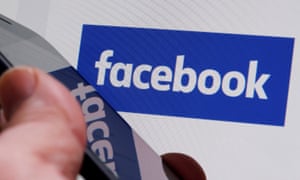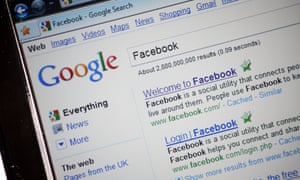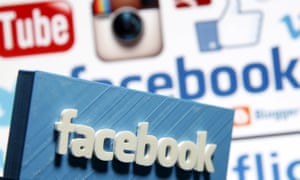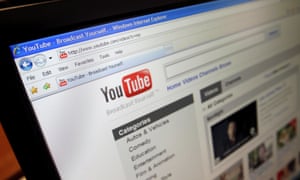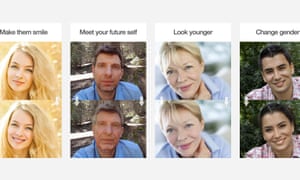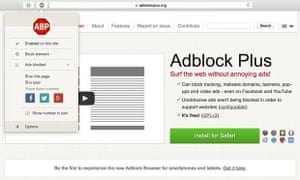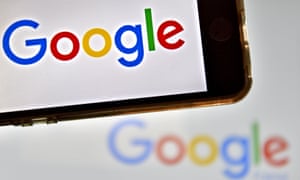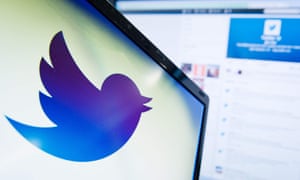MM58
The Internet/Social Media
The internet and social media are currently transforming the way people communicate, gather information, socialise, access entertainment and organise their lives. There has never been so much information available so readily, and its impact is likely to be as big as that created by the printing press. Old industries (such as print newspapers) are struggling to survive while new technologies such as augmented and virtual reality, robotics and artificial intelligence are already in development. From cyber-bullying to trolling, easy access to pornography, cat-fishing, radicalisation, and the risk of grooming, the internet and social media have generated many modern moral panics about potential social change. While some of these dangers may be exaggerated, we do know that terrorist groups recruit online and use the Internet to communicate their propaganda, and that bullying and vicious trolling do exist. It is almost inevitable that these technologies will create major societal and economic changes – it’s just not clear what direction these changes will take.
Hostile Media Coverage
How has the media portrayed the refugee crisis? In the British press, a great deal of the language and the imagery has been hostile. Refugees are often labelled as migrants, to create the impression that they are travelling by choice, rather than fleeing a genuine disaster. A quick Google Images search of newspaper headlines reveals a shocking montage of misrepresentation, in which refugees are described as a swarm, horde or tide, marauding and invading their way across the world. They are held responsible for their own condition, even – or especially – when the West itself has contributed to it. Such language deliberately creates the impression in readers’ minds that refugees are a dangerous and threatening mass, parasitically living off the settled countries of the West. In any tabloid scare story about migrants/refugees, there is rarely any analysis of the causes of the refugee crisis. Any such analysis would run the risk of complicating the picture of a deluge of scroungers, and might even lead us to think of them as human beings.
What about YouTube, Vimeo and the hundreds of other sites with film clips, interviews and reviews? They are all useful. The main point is to focus on what you want to research and to search for it in a systematic way. It’s easy to get distracted and start watching a movie. Fine if you’ve got the time, but not good if you have an essay to write or a presentation to give. Teachers and examiners will want to see references for the range of sources you’ve used, so make sure you list some of the industry organisations above. Many of them have their own YouTube channels.
MM54
Heaven or Hell – the Verdict?
So, social media: heaven or hell? Perhaps, like most forms of communication Web 2.0 is only a reflection of our existing social divides. Perhaps for some, it presents opportunities to explore their identities; but for others it works as a set of ideological blinkers concentrating their existing prejudices.
According to Wikipedia, in media, an echo chamber is a situation in which information, ideas, or beliefs are amplified or reinforced by transmission and repetition inside an ‘enclosed’ system, where different or competing views are censored, disallowed or otherwise under-represented. Giddens argues that in modern or postmodern societies, the question of self-identity – ‘What to do? How to act? Who to be?’ – is inescapable. Unlike oral societies, we have to work out our own roles for ourselves. These will be influenced by both individuals and the state, social and legal changes and, of course, the media.
Alan Martin sees personalisation at its most problematic. We don’t have to look too deeply into our Facebook and YouTube commentary streams to find adversarial social media ‘banter’ that can escalate into extreme and entrenched debate. Alan Martin believes that we are more likely to be adversarial online because we immerse ourselves in blinkered communities, identifying our own viewpoints as the centre ground. We think anyone straying too far from that consensus must be wrong, ignorant or mad; in this way, the internet insulates us from unfamiliar ideas.
MM53
The Role of Social Media
It is also possible that social media had an impact as, in what is now ‘classic’ Web 2.0 fashion, it enabled audiences to produce and distribute texts. For example, The Sun’s front page the day before the election has an unflattering picture of Miliband eating a sandwich. A hashtag ‘#JeSuisEd’ encouraged tweeters to share embarrassing pictures of people doing the same, making the point that anyone can look an idiot eating butties. In addition, @twcuddleston started #Milifandom, a Twitter-based fan club for the Labour leader. But whatever impact these memes had, they were overwhelmed by the pro-Tory press coverage.
The first leader interviews received complaints that the two leaders were treated differently, and that the programme was biased against Miliband. Polls taken afterwards showed no clear winner – YouGov took two polls that gave contradictory results. Surveys of social media responses seemed to favour Miliband. The interviews were watched by about 3 million people. About 7 million people watched the ITV debate and the winner of the debate, depending on the poll, was either Miliband or Sturgeon (for the SNP). An analysis of social media showed that Farage’s comments about immigrants with HIV were negatively received and the minor parties were tweeted about most favourably, with Cameron least favoured of all the leaders. The third debate was dogged by controversy. Cameron claimed he was ‘not invited’ to the debate whereas the other parties, the broadcasters and many on social media were keen to point out that the lack of governmental presence was his choice. Nearly 9 million people watched this debate and Miliband appeared to have ‘won’ the debate, in both traditional polls and in online responses.
"A catfish is someone who pretends to be someone they’re not using Facebook or other social media to create false identities, particularly to pursue deceptive online romances."
We’ve already identified how viewers will choose to watch hosts who they relate to or find entertaining. As a mini case study on audience identity, let’s look at the popular YouTube gaming channel and production company, Rooster Teeth. Currently, Rooster Teeth (RT) has approximately 21 million subscribers across their several YouTube channels. Their growth can largely be attributed to their fans. They have created an online community who discuss videos, interact with employees/hosts and create their own content for the company to use. RT’s website features community message boards which allow fans to discuss games, films, videos uploaded by the channel and pretty much anything else. It has become a social hub for fans who know that they all have at least one thing in common. The website also features a store that is well stocked with T-shirts, mugs, hoodies, keyrings, stickers and many other pieces of merchandise for fans to buy.
MM34
The X Factor and the music industry
Last year, a social media campaign successfully kept winner Joe McElderry off the top spot by persuading even more people to download Rage Against the Machine’s ‘Killing in the Name’. This ended four years of consecutive Christmas no.1s for The X Factor, and was seen by many as evidence of people power hitting back at the mass-produced commercial fare that Simon Cowell was trying to foist on us. After all, Rage’s song is a rant against capitalism, and the band reinforced this stance by donating the profits to charity.
Celebrity Tweet
What is interesting here is the comparison between the stars that use Twitter and those who don’t – and indeed how this can affect their image. It seems fitting for Frost to post images of himself cooking because the parts that he tends to play require a sense of authenticity and ‘everydayness’. Twitter seems to support his ideological position, and it is down to Frost to support this image through what he posts. Another British celebrity, Jonathon Ross, also provides interesting insights into his home life, again supported with self-taken photographs. The images used to represent the ‘real’ star are no longer photographed and managed by a team of PR consultants, but constructed by the stars themselves. Twitter images thus seem raw and unmediated, offering an interesting comparison to the ‘airbrushed’ artificial presentations we see in magazines and newspapers.
Fac(ebook)ing the changes
For me, one of the big changes in the media is the impact social networking has had on our daily lives. It’s a case of blink, and there it is, all-pervasive, all-consuming, all-knowing, and I didn’t see it coming. Though there are several of these sites – Bebo, MySpace, Twitter, and MSN and so on, I am going to focus on Facebook.
Media Factsheet 131
As social media has developed, it has become a useful way for news editors to gauge the way that people think and feel and so news institutions can select stories that reflect current trends or they can try and create a trend by reporting stories that will get people talking about the story on Twitter, Facebook and other social media.
Media Factsheet 134
Consequently nearly all digital content has a capacity to be shared on social platforms such as Facebook, YouTube, Twitter, LinkedIn, Instagram, Reddit, Pinterest, Ello, Medium, Kickstarter but yet the news institutions have yet to create or conceive of a platform where they control the distribution of news, equally social media sites have no interest in employing journalist to editorialise and check content.
Facebook and other social media sites use a series of complicated formulae to decide which news stories rise to the top of your page or news feed and this algorithm contains editorial decisions, every piece of software design carries social implications. Gatekeepers no longer shape the news agenda and newsroom norms but shaped by algorithms which determine which promote popular stories.
Up-to-the-minute research
Snapchat 'will be bigger than Twitter, Yahoo and AOL with advertisers'
https://www.theguardian.com/business/2017/mar/26/snapchat-will-be-bigger-than-twitter-yahoo-and-aol-with-advertisers
- Snapchat could become more popular with advertisers than Twitter, Yahoo and AOL within three years, with the messaging app company forecast to bring in revenues of more than $3bn (£2.4bn) a year before the end of 2019.
- That bullish forecast is based on advertisers targeting the youth audience that the disappearing photo app has seemingly cornered. More than half (51%) of video users on Snapchat are under 24, compared with 23% for Facebook and 17% for Google’s YouTube, according to Ampere Analysis.
- The number of Snapchat users grew by 14% and 17% in the first two quarters of last year. Following the launch of Instagram Stories, Snapchat’s growth slumped to 7% and just 3.2% in the final two quarters of 2016. Snap has blamed “technical issues” in the rollout of new products, but admitted in its IPO document that Facebook/Instagram would be a huge threat.
- Last summer, Instagram – which has 600 million users to Snapchat’s 158 million – launched a function called Stories, which is similar to Snapchat’s own story feature. Instagram Stories has already achieved 150 million daily active users. Instagram Stories’ launch intensified another concern: Snapchat’s slowing growth.
- “Our competition may mimic our products and therefore harm our user engagement and growth,” Snap acknowledged.
Snap Inc: it's Snapchat, but now with video-recording 'Spectacles'
https://www.theguardian.com/technology/shortcuts/2016/sep/26/snap-inc-snapchat-spectacles-video-recording-sunglasses
- Young people have too much time. Perhaps. But as a result, Snapchat is now worth about $22bn (£17bn), just five years after some college friends started it at home. Today, CEO Evan Spiegel is a 26-year-old multi-billionaire engaged to the supermodel Miranda Kerr.
- Glasses that record video … That reminds me of something. Google Glass?
- Snap Inc. Whatever. The point is that Google Glass were these high-tech nerd goggles, but Spectacles will be simple, bold, fun – and cool!
- It seems so obvious, in retrospect. So why does Spiegel think Spectacles will be different? Well, they’re cheaper and brightly coloured. Or, at least, they will be when they go on limited release in the US for $130 (£101) this autumn. Plus, hey, they’re from Snapchat!
- I think I’ve heard of Snapchat. Is it that thing where you show people your genitals for five seconds? Pictures of your genitals, yes. That’s one of its uses. It’s the app that lets you share photos and videos that delete themselves shortly afterwards. Plus you can add silly graphics and effects. Young people like it.
Apple launches Clips as it bids for a slice of the Snapchat action
- Cloning Snapchat is the new brunch, which is the new black. Facebook did it, Instagram did it, even WhatsApp did it. But even so, it’s surprising today to see that Apple’s done it too.
- Instead, the goal of Clips is to enable the same sort of fun, creative camera tomfoolery that Snapchat does in its main camera app, but with an explicitly destination-neutral approach.
- No Clips Stories; no ephemeral messaging; no new usernames to secure or QR codes to share.
- If that description makes Clips sound like a Frankenstein’s monster of an app, well, it is. But that doesn’t mean it’s not fun. It’s essentially an evolution of Apple’s mobile version of iMovie, its video-editing app. While iMovie on desktop is a fairly fully-fledged video editing app, useful for creating slick videos with a lot of editing, on mobile it’s always been just a bit too heavy-duty for the sort of things it’s used for, like slamming two clips together and putting a bit of music over them.
- For it to really take off, it needs to find some originality before long. Snapchat’s lenses are rapidly becoming a recognisable draw to the app, even for people who don’t use it to chat. Prisma’s AI-powered filters are similarly unique. Clips can launch without a draw of its own, but eventually it needs its own calling card.
Snapchat denies claim CEO did not want to expand into 'poor India'
- Snapchat is facing a public relations crisis in India, the world’s fastest growing smartphone market, after allegations its founder said the app was “only for rich people” and that he did not want to “expand into poor countries like India”.
- The complaint was unsealed last week, revealing an allegation that Spiegel, the company’s chief executive, once told Pompliano he had no interest in expanding Snapchat into countries such as India.
- Snapchat, which has about 4 million users in India, has called the allegations “ridiculous”. “Obviously Snapchat is for everyone. It’s available worldwide to download for free,” the company said.
- India is a burgeoning market for online businesses with about 432 million internet users and another 750 million people yet to be connected.
- But India has proved a challenging market to crack. Last year a scheme by Facebook to provide free mobile internet to hundreds of millions of Indians was ruled a violation of net neutrality and stopped in its tracks.
Facebook clones Snapchat again with WhatsApp Status and Direct Photos
- Not content with taking on Snapchat by shipping two clones of Snapchat Stories, attempting two acquisitions (one of Snapchat, one of a Chinese company making Snapchat-style camera apps), making four standalone Snapchat-style apps, bundling two ephemeral messaging implementations, and creating five new cameras with AR lenses, (see also here, here, here, here, here, here and here), Facebook is again shamelessly taking on Snapchat.
- The killer app of WhatsApp Status, for the privacy-conscious at least, is the fact that all the status updates are end-to-end encrypted, intended to prevent man-in-the-middle attacks from successfully eavesdropping on your updates.
- “Can they not be innovative? Do they have to steal all of my partner’s ideas? I’m so appalled by that,” Kerr continued. “When you directly copy someone, that’s not innovation.”
- But the bigger news came a few hours later, when Facebook messaging subsidiary WhatsApp announced a major new feature. Status lets users take pictures, add stickers and drawings, and share them to all their contacts for 24 hours. It’s pitched by WhatsApp as an update to the original, text-only, “status” feature, which lets you set a text status like “out for lunch” or “available to talk” within the app, but it’s also a lot like Snapchat Stories. That is, nearly identical to Snapchat Stories. Although, to be fair, it’s also nearly identical to the Instagram clone of Snapchat Stories, Instagram Stories.
Snap shares continue to rise after IPO but analysts remain wary
- Shares in Snap Inc, the picture messaging app that went public yesterday with a valuation of $29bn this week, continued to soar on Friday as some analysts warned against “hot air” fuelling the dramatic rise.
- The stock rose substantially after the media firm NBCUniversal disclosed a $500m stake taken at the initial public offering (IPO).
- The initial success of the offering raises the likelihood that the tech sector could soon present further public offerings, but analysts remain wary.
- On Thursday, the Instinet analyst Anthony DiClemente urged investors to reduce their holdings of Snap, warning that the company is already seeing a slowdown in the growth of daily average users and average revenue per users.
UK Internet ad spend passes £10bn as Google faces YouTube row
- Internet advertising spend surged above £10bn in the UK last year as companies more than doubled the amount they spent on mobile video ads.
- The year-on-year increase of 17% on 2015 comes as many advertisers have pulled campaigns from Google and YouTube after it emerged that some ads have been running around inappropriate content such as extremist videos.
- “People are increasingly using their smartphones to watch more clips, programmes and films,” said James Chandler, the chief marketing officer at the Internet Advertising Bureau UK, which published the annual digital ad spend report. “Consequently, as companies have to follow what the industry calls ‘eyeballs’ to get their ads in front of people, they have to allocate more budget to mobile and online video as that’s where people are spending more time.”
- The IAB report also found that nearly three-quarters of the £3.8bn digital display advertising market is traded programmatically, where machines have become largely responsible for choosing where ads are booked by advertisers and appear on the internet.
Snapchat cracks down on risque images and fake news
- Snapchat is tightening up its guidelines for publishers on its Discover service, banning the posting of risque images without editorial value, and clarifying guidelines intended to prevent the spread of fake news on the platform.
- The changes, according to a spokeswoman for Snap, Snapchat’s parent company, are intended to “empower our editorial partners to do their part to keep Snapchat an informative, factual and safe environment for everyone”.
- As well as the rules against questionable pictures, Snapchat Discover will also begin to crack down on the hot topic for most social networks: so-called fake news. Publishers will now be required to start fact-checking Discover stories, both those published in the app and linked to from it.
- Snapchat’s new rules will require some news justification or other editorial value before such stories can be posted to the service. Snap also plans to give publishers a tool in February that will allow them to age-gate content, presenting different stories to users over and under 18, according to the New York Times.
Facebook tries to clone Snapchat for 8th, 9th and 10th times
- Facebook has been trying to steal Snapchat’s thunder for a while, but this weekend the social network beat even its own covetous record.
- On Friday came the news that Facebook is testing a new camera in its main app that offers Snapchat Lens-style photo and video filters to users. The camera, available to users in Ireland for now, is accessed by swiping right on the homescreen of the Facebook app.
- On Monday, TechCrunch reported that Facebook tried to buy the Asian snapchat clone Snow. Like Snapchat, Snow features, you guessed it, a large portfolio of filters and masks. TechCrunch says that some time after it was profiled by the New York Times in July, the Facebook CEO, Mark Zuckerberg, made a move to acquire the company. But just like Snapchat did before it, Snow rejected the offer, seeing a bigger future outside Facebook than in.
- In 2012, it coded Poke, a flagrant clone of Snapchat, in just 12 days, focusing on the ephemeral picture messaging. Zuckerberg was proud of Facebook’s speed, but the app disappeared without a trace shortly after.
- In 2013, Facebook tried to buy Snapchat for a reported $3bn, but Snapchat declined.
- In 2014, Facebook launched a fully-featured ephemeral messaging rival Slingshot, which actually had unique features of its own, including the ability to require a picture message in reply before the original was ‘unlocked’. Slingshot died a year later.
- In 2015, Facebook tried a different tack, rolling ephemeral messaging into Messenger in a test. The test wasn’t rolled out widely.
- In 2016, it did it again, this time pushing the ephemeral messaging as part of a suite of security updates for messenger, alongside end-to-end encryption. Those features are still in Messenger.
Does quitting social media make you happier?
- Yes, say young people doing it...
- Facebook made me feel anxious, depressed and like a failure. When I went online it seemed like everyone was in Australia or Thailand, and if they weren’t travelling they were getting engaged or landing great jobs. I felt like everyone was living the dream and I was still at home with my parents, with debt from my student loan hanging over me.
- I also felt that if I wasn’t tagging myself at restaurants or uploading photos from nights out, people would assume I wasn’t living. I remember a friend from uni said to me once, “Yeah, but you’re still going out having fun, I’ve seen on Facebook.” I tried to present myself as always having a great time. If my status didn’t get more than five likes, I’d delete it.


